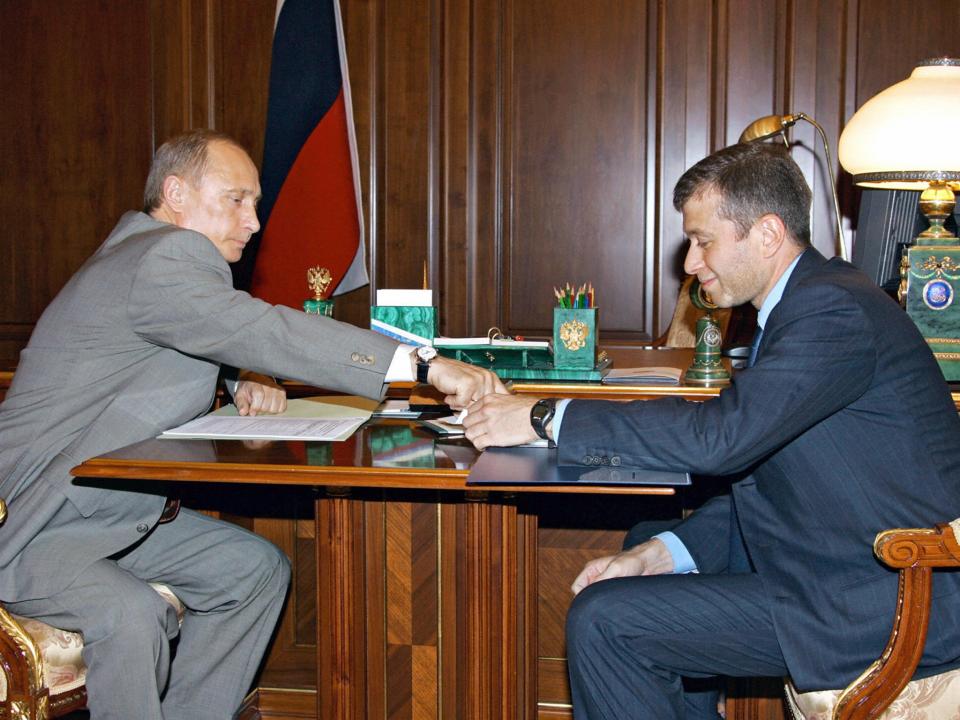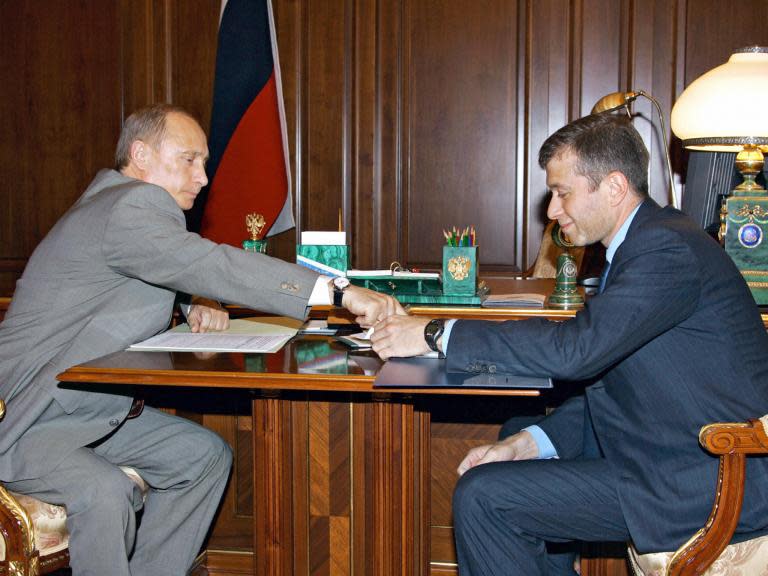Why is Russia so nervous about the visa status of Roman Abramovich?
The news that Roman Abramovich might be having issues in renewing his British visa is being viewed by some in Moscow as a personal challenge to Vladimir Putin himself.
There is little verified information about the exact nature of the problems being experienced by the billionaire owner of Chelsea Football Club and Mr Abramovich’s office told The Independent it was a private matter. The Home Office remains tight-lipped and government spokesmen have offered little of substance. Visa applications are “rigorous and proper”, Downing Street has suggested, while a security minister has noted that “more cases over the next few weeks could be on their way”.
Many questions remain – has Mr Abramovich been denied a visa? If so, on what grounds? Is this a demonstration of muscle before the inevitable new documents are issued? Or has this been directed by Downing Street?
And this, says the Russian exile businessman Vladimir Ashurkov, is highly problematic.
“If the British are trying to send out a message, it is a really weak one,” he says. “Mr Abramovich is one of richest men in Britain, owns a football club, and is a prominent public figure. The public deserves to know what the government really thinks about him.”
Mr Abramovich has held British visas for several years. But the rules on his Tier 1 investor visa were tightened in 2015, after his last renewal. Applicants now have to show that £2m of the investments they make into the UK are from legal sources.
The oligarch is unlikely to have much problem in doing this, if that is indeed the only hurdle he has to leap.
But whatever the British decision actually is, it suffers for being non-transparent, says the author and security expert Mark Galeotti. It would be one thing if he was targetted for being a Russian oligarch, and quite another if the government was acting on intelligence.
“If they have some specific information about Abramovich, they should make it public, so the punishment actually has some deterrent effect,” he says.
It is also unclear whether the British government decided to move against Mr Abramovich because of coincidence – a visa renewal so soon after Skripal – or due to his proximity to power.
Mr Abramovich is considered to be very close to the Kremlin, but he is not unique in that regard, and is not quite in Vladimir Putin’s inner circle.
But the oligarch is also considered a reliable go-to and source of finance for many projects, says Valery Solovei, Professor at the Moscow State Institute of International Relations. And that link has been enough for Moscow to draw its own conclusions.
According to Mr Solovei, the Kremlin has probably interpreted Mr Abramovich’s visa problems as a direct challenge to the president himself. By attacking Russia’s vulnerabilities – the nexus of money and politics – the conflict with Britain has become not only serious, but also highly personal.
“The mood in the Kremlin is that they want to have nothing more with this British government,” he says. “There is no way back for Theresa May or Boris Johnson as far as Moscow is concerned; they are waiting for the next elections.”
The British moves have been heavily ridiculed in state propaganda. News programmes have suggested the UK is out to punish Russia, whatever the grounds, with Theresa May portrayed as the main bogeywoman.
“The average Russian isn’t going to shed tears over poor oligarchs, but the lack of clear reasons has allowed the Kremlin can put whatever spin they want on it,” says Mr Galeotti. “But the rich Russians who once thought London was open to them have begun will now look to find somewhere to go. It doesn’t modify behaviour at all.”
Following tightened legislation and warnings of an impending crackdown, hundreds of millions of pounds of Russian cash has already left British shores over recent months. The trend looks set to continue.
“The UK was once considered a safe haven for Russians, but no more,” says Mr Solovei. “Well-off Russians have begun to look for other places to put their cash, nervous about the possibility of new and unpredictable sanctions.”
A parliamentary report published on Monday raised the prospect of a further strengthening of the sanctions regime against Russia. It claimed “dirty money” was in danger of undermining the reputation of the City of London. In its most radical sections, it suggested coordinated moves to make it harder for Russia to raise money on the markets.
One of the people interviewed for that report, Mr Ashurkov, said that it is unlikely the UK would gain broad agreement for a move that would likely enrage Moscow further.
“That, at present, seems an unwarranted step,” he said.

 Yahoo News
Yahoo News 

